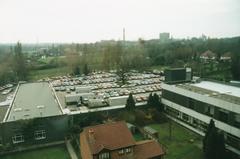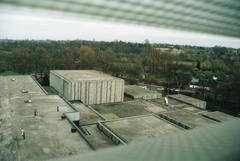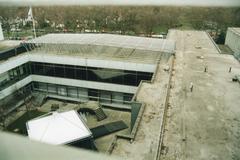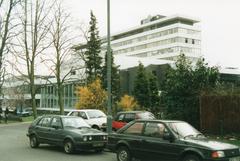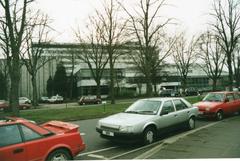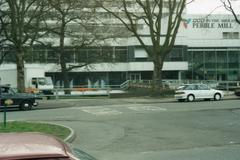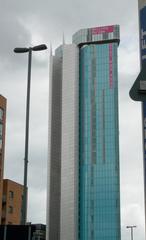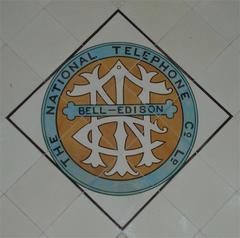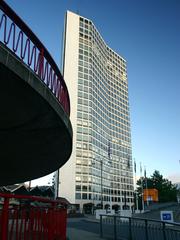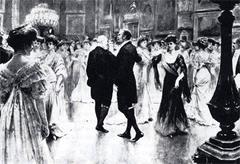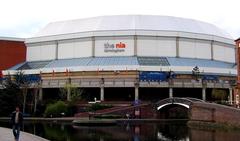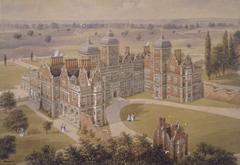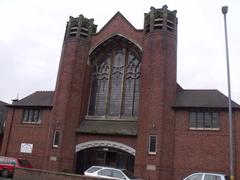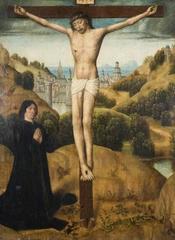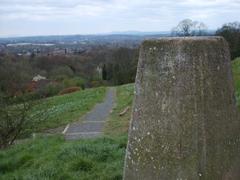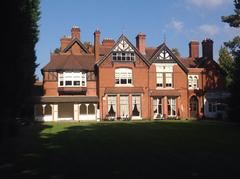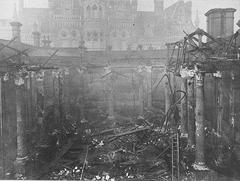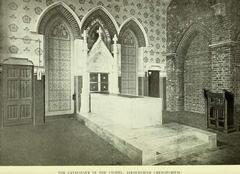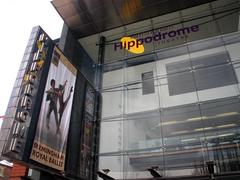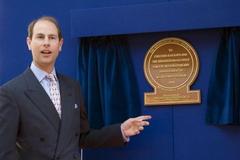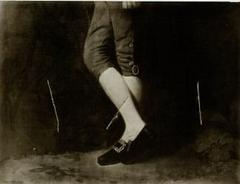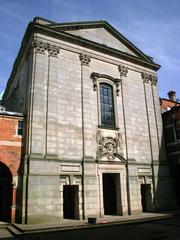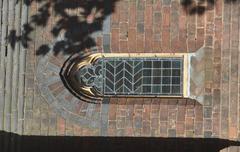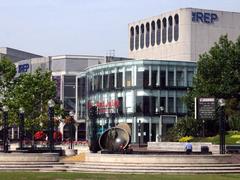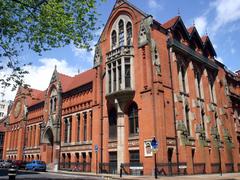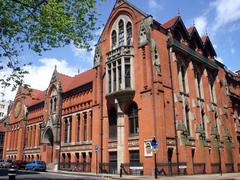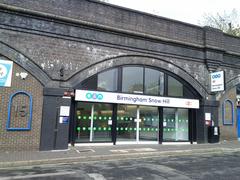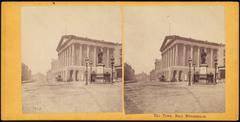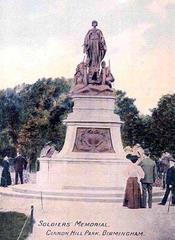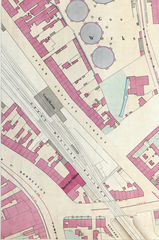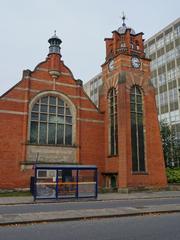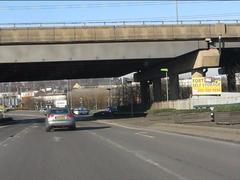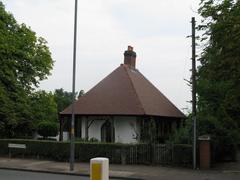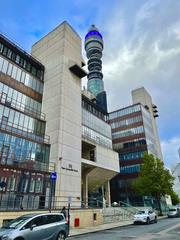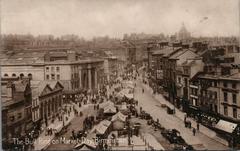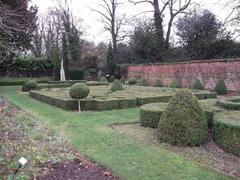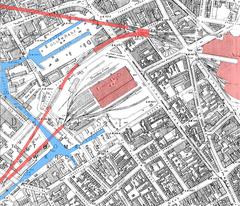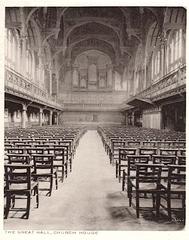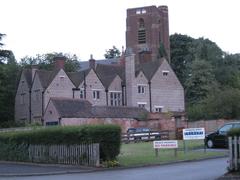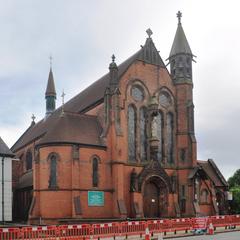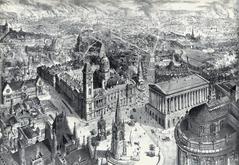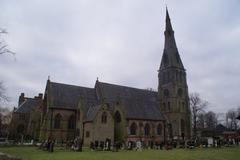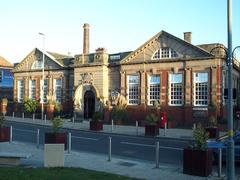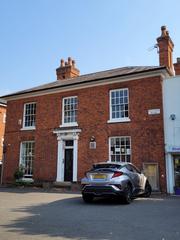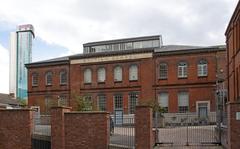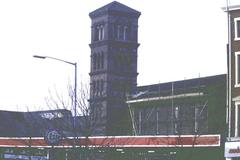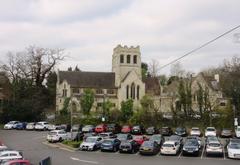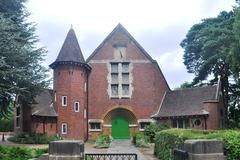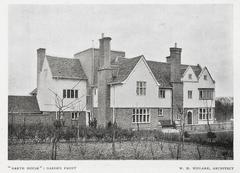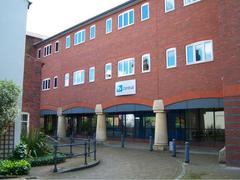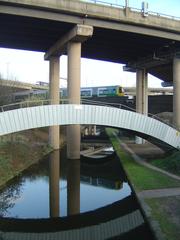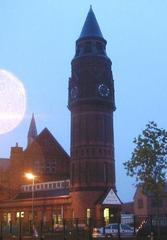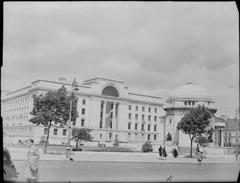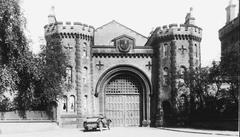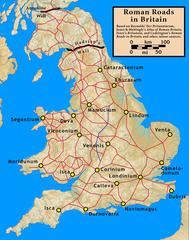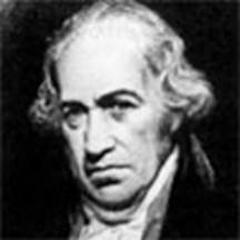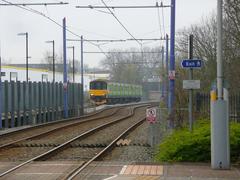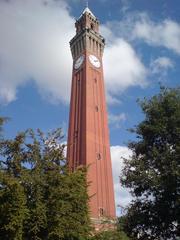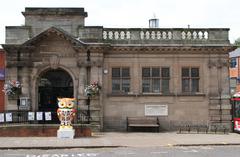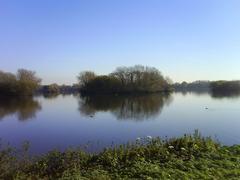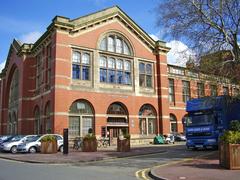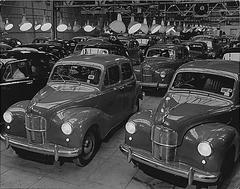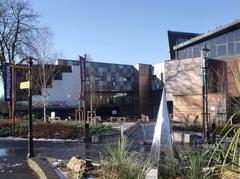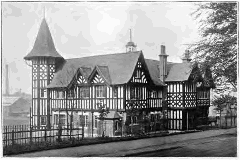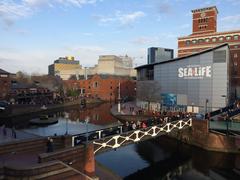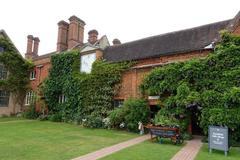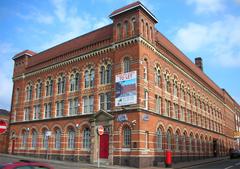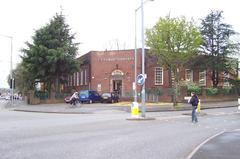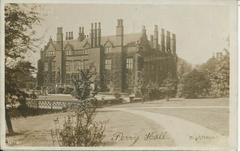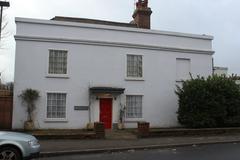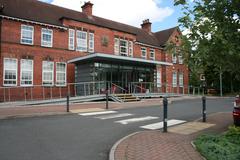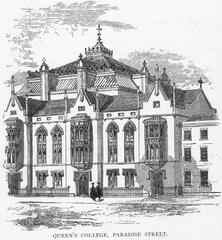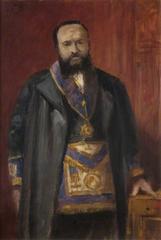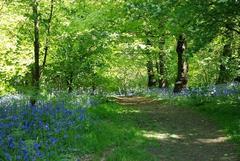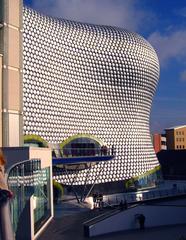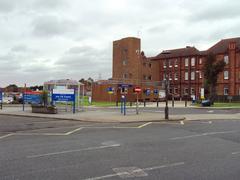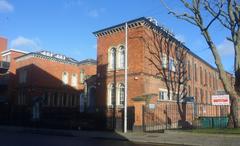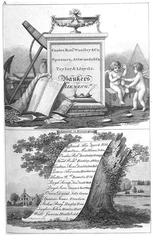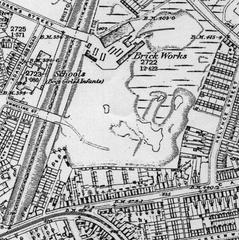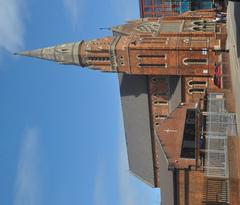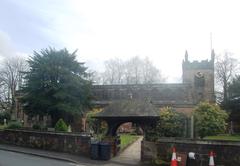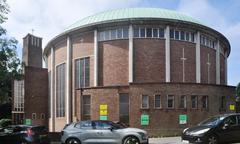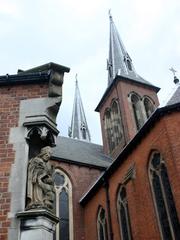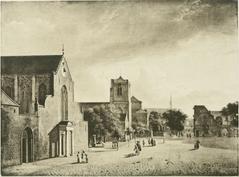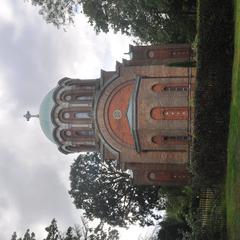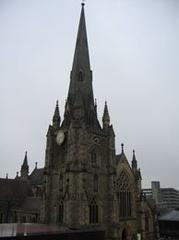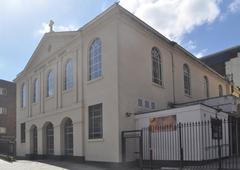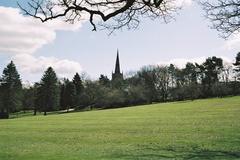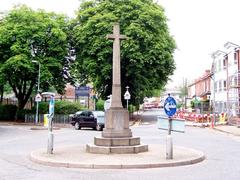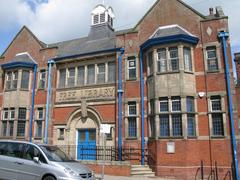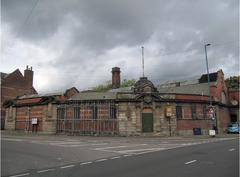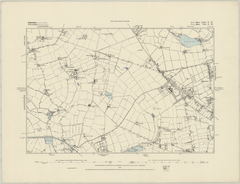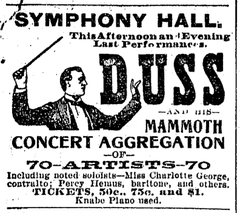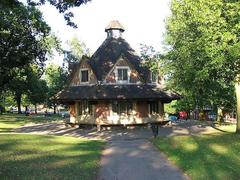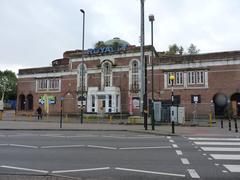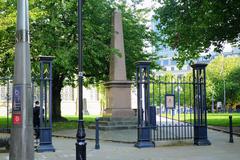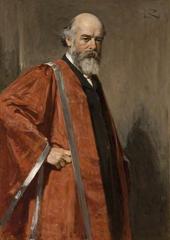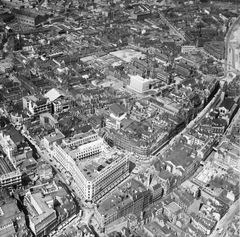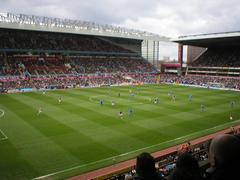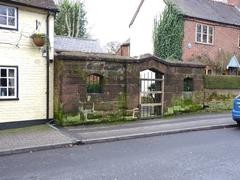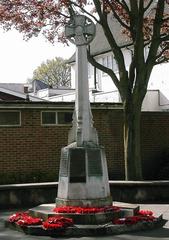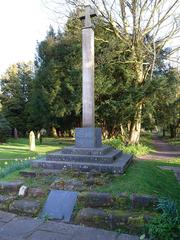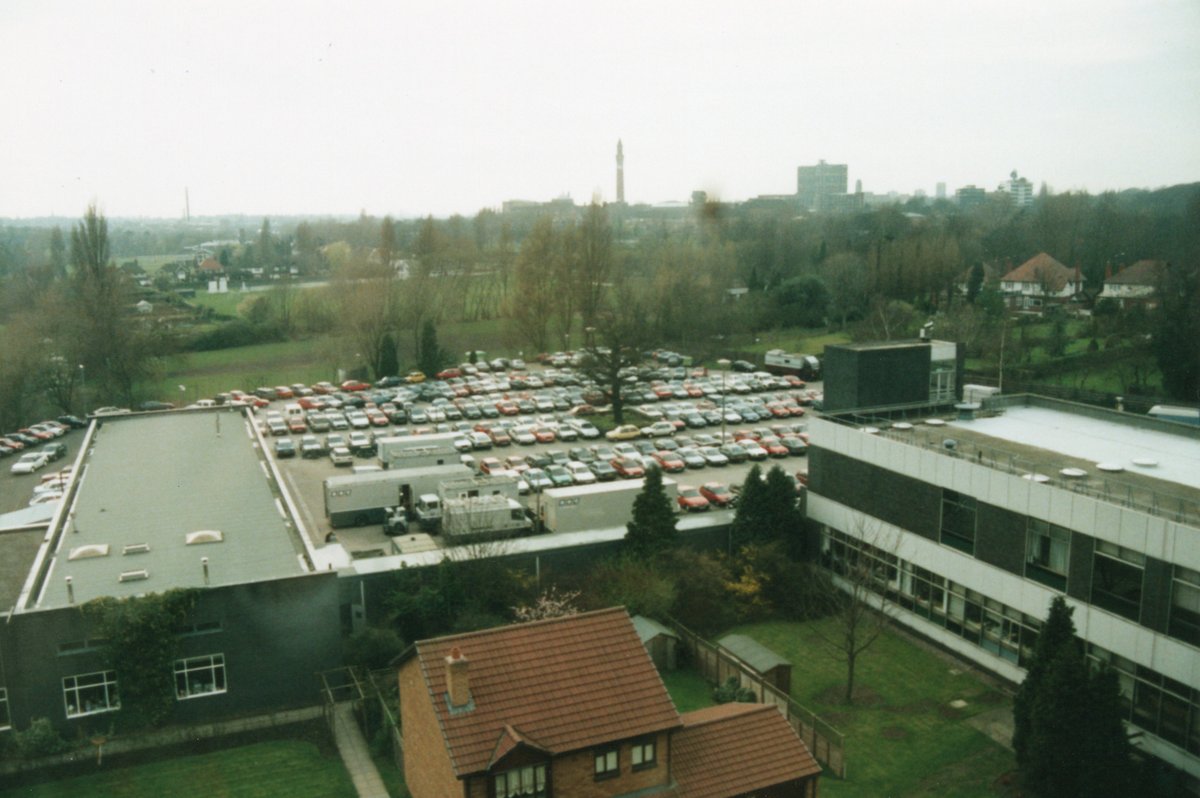
Pebble Mill Studios Visiting Hours, Tickets, and Historical Significance in Birmingham
Date: 14/06/2025
Introduction
Pebble Mill Studios, once the beating heart of British regional broadcasting, remains a key symbol of Birmingham’s cultural and media landscape. Established as the BBC’s first purpose-built regional broadcasting centre, Pebble Mill played a pivotal role in decentralizing UK media and nurturing local talent. While the original studios closed in 2004 and were demolished a year later, their legacy permeates the modern Pebble Mill campus—a thriving hub for healthcare, education, and student living. This guide details the site’s historical significance, how to engage with its heritage, current visitor information, and tips for making the most of your visit.
Table of Contents
- Historical Overview: The Rise of Pebble Mill Studios
- Broadcasting Legacy and Cultural Impact
- The Pebble Mill Site Today: Facilities and Visitor Information
- Visiting Hours, Tickets, and Accessibility
- Nearby Attractions and Experiences
- Frequently Asked Questions (FAQ)
- Conclusion and Recommendations
- Sources and Further Reading
Historical Overview: The Rise of Pebble Mill Studios
Origins and Construction
The BBC’s vision for Pebble Mill began in 1951, with the acquisition of a nine-acre site in Edgbaston, Birmingham. After years of planning, construction commenced in 1967, spearheaded by architect John Madin. The studios officially opened on November 10, 1971, inaugurated by HRH Princess Anne, marking a milestone as the UK’s first purpose-built regional broadcasting centre. The architectural design featured a welcoming foyer with floor-to-ceiling glass, symbolizing accessibility and innovation (BBC Birmingham, Pink For Your Actual Pterodactyl).
Key Facilities
Pebble Mill housed two main television studios (A and B), multiple radio studios, technical workshops, and editing suites. The open-plan foyer quickly became an iconic space, both as a welcoming area and a set for live broadcasts. Over the decades, its adaptable spaces allowed for a wide variety of productions—from news to drama, music, and children’s programming.
Broadcasting Legacy and Cultural Impact
Programming Milestones
Pebble Mill Studios was renowned for its innovative and diverse programming, including:
- Pebble Mill at One (1972–1986): A pioneering live daytime magazine show broadcast from the foyer, breaking traditional studio boundaries (BBC News).
- Midlands Today: The flagship regional news programme since 1971.
- The Archers: The world’s longest-running radio soap opera, produced at Pebble Mill for decades.
- Top Gear: The original motoring show launched here before becoming a global phenomenon (BirminghamWorld).
- Doctors: Daytime drama series filmed on site until the studio’s closure.
- Gardeners’ World: A staple for gardening enthusiasts produced at Pebble Mill for many years.
- Children’s Programming: Including Rentaghost and HartBeat, underscoring the BBC’s reputation for quality family content.
Cultural and Industry Impact
Pebble Mill fostered a creative community where emerging talent could thrive, helping decentralize British broadcasting. Its technical infrastructure served as a regional hub for broadcast switching and as a backup for London, further cementing its importance. The studios’ openness and public engagement, including live audiences and celebrity visits, made it a beloved Birmingham institution (Pebble Mill History).
Decline and Closure
By the early 2000s, shifts in production practices and the rise of smaller, more flexible facilities led to the decision to close Pebble Mill. The last broadcasts took place in 2004, followed by the building’s demolition in 2005. Despite this, the Pebble Mill name remains synonymous with innovation and regional pride (Birmingham World).
The Pebble Mill Site Today: Facilities and Visitor Information
Modern Redevelopment
The current Pebble Mill campus is a vibrant, 27-acre mixed-use site, home to:
- Birmingham Dental Hospital and School of Dentistry: The UK’s first new integrated dental hospital and school in nearly 40 years (Birmingham Mail).
- Circle Rehabilitation Hospital: A private hospital offering specialist rehabilitation and medical services.
- Vita Student Accommodation: Premium student apartments with modern amenities, including study spaces, gyms, and communal kitchens (Morgan Sindall Construction).
- Bupa Care Home: Modern facilities for residential and nursing care.
- Retail and Leisure: Costa Coffee drive-thru, ASDA supermarket, tranquility gardens, boardwalks, and the Pebble Mill Recreation Ground—all blending community, leisure, and wellness (Pebble Mill Birmingham).
Accessibility and Site Layout
Located on Pershore Road, Edgbaston (B29 7ES), Pebble Mill is approximately 3.5 miles from Birmingham city centre. The site is easily accessible via public transport (several bus routes, University railway station), by car (limited parking available), by bicycle, and on foot.
Visiting Hours, Tickets, and Accessibility
- General Access: Pebble Mill is a working campus, not a traditional tourist attraction. There are no entry fees or tickets required for public areas, and the site is open year-round.
- Medical Facilities: Typically open Monday–Friday, 8:00 AM to 6:00 PM. Check individual hospital or clinic websites for appointment or visiting specifics.
- Retail and Café: Costa Coffee and ASDA are generally open daily from 7:00 AM to 10:00 PM.
- Public Green Spaces: The recreation ground, tranquility garden, and boardwalk are open from dawn to dusk.
- Student Accommodation: Entry is for residents and their guests only (Student.com).
Accessibility: The site is designed for step-free access with wheelchair-friendly routes and accessible facilities.
Guided Tours: There are no official guided tours of the original studios, but commemorative plaques and occasional heritage events celebrate the site’s broadcasting past (Pebble Mill Blog).
Nearby Attractions and Experiences
- Cannon Hill Park: Adjacent to Pebble Mill, with landscaped gardens, sports facilities, and the Midlands Arts Centre.
- Birmingham Wildlife Conservation Park: Located within Cannon Hill Park.
- University of Birmingham: Home to the Barber Institute of Fine Arts and Lapworth Museum of Geology.
- Edgbaston Cricket Ground: Major sporting venue nearby.
- Birmingham City Centre: Easily reached by public transport for shopping, dining, and cultural attractions.
Photographic Spots: The tranquility garden, boardwalk, and recreation ground offer excellent backdrops for photography.
Accommodation Options: Vita Student Pebble Mill offers modern studio apartments (primarily for students), with nearby hotels and guesthouses in Edgbaston and Selly Oak available for short-term stays (Uninist).
Frequently Asked Questions (FAQ)
Q: Can I visit or tour the original BBC studios at Pebble Mill?
A: The original studios were demolished in 2005. While there are no studio tours, commemorative plaques and local heritage walks honor the site’s broadcasting legacy (BBC Birmingham).
Q: Are there tickets or entry fees?
A: No tickets are required for public areas. Medical and dental services require appointments; retail and leisure areas are open to all.
Q: What are Pebble Mill’s opening hours?
A: Public green spaces are open dawn to dusk. Medical and retail hours vary; consult specific facility websites.
Q: Is the site accessible by public transport?
A: Yes, multiple bus routes and the University railway station provide convenient access.
Q: Where can I learn more about Pebble Mill’s broadcasting history?
A: Explore the Pebble Mill Archive for photos, stories, and audio-visual materials.
Conclusion and Recommendations
Pebble Mill’s journey—from pioneering BBC broadcasting centre to a modern healthcare and education campus—reflects Birmingham’s resilience and adaptability. While the original studios are gone, their legacy endures in the city’s cultural landscape and in the memories of iconic programmes produced here. Today, Pebble Mill is a welcoming destination blending history, innovation, and community, with excellent access to green spaces, amenities, and nearby attractions.
Visitor Tips:
- Check opening hours for specific facilities.
- Explore commemorative plaques and join heritage walks for insights into the site’s broadcasting past.
- Use public transport or cycle for convenient access.
- Visit the Pebble Mill Archive and related online resources for a deeper dive into media history.
Sources and Further Reading
- Pebble Mill Studios: History, Legacy, and Cultural Significance in Birmingham Broadcasting (Pink For Your Actual Pterodactyl)
- Pebble Mill Studios: Exploring Birmingham’s Iconic Broadcasting Heritage and Visitor Experiences (Birmingham World)
- Pebble Mill Birmingham Official Site
- Pebble Mill Birmingham: Visiting Hours, Accommodation, and Nearby Attractions (Uninist & Hallbookers)
- BBC Birmingham Goodbye Pebble Mill How It Began (BBC)
- Birmingham Mail: What Birmingham’s landmark buildings used to be
- Morgan Sindall Construction: Vita Student Accommodation Birmingham
- Student.com: Vita Student Birmingham Pebble Mill
- BBC Birmingham Final Tour
